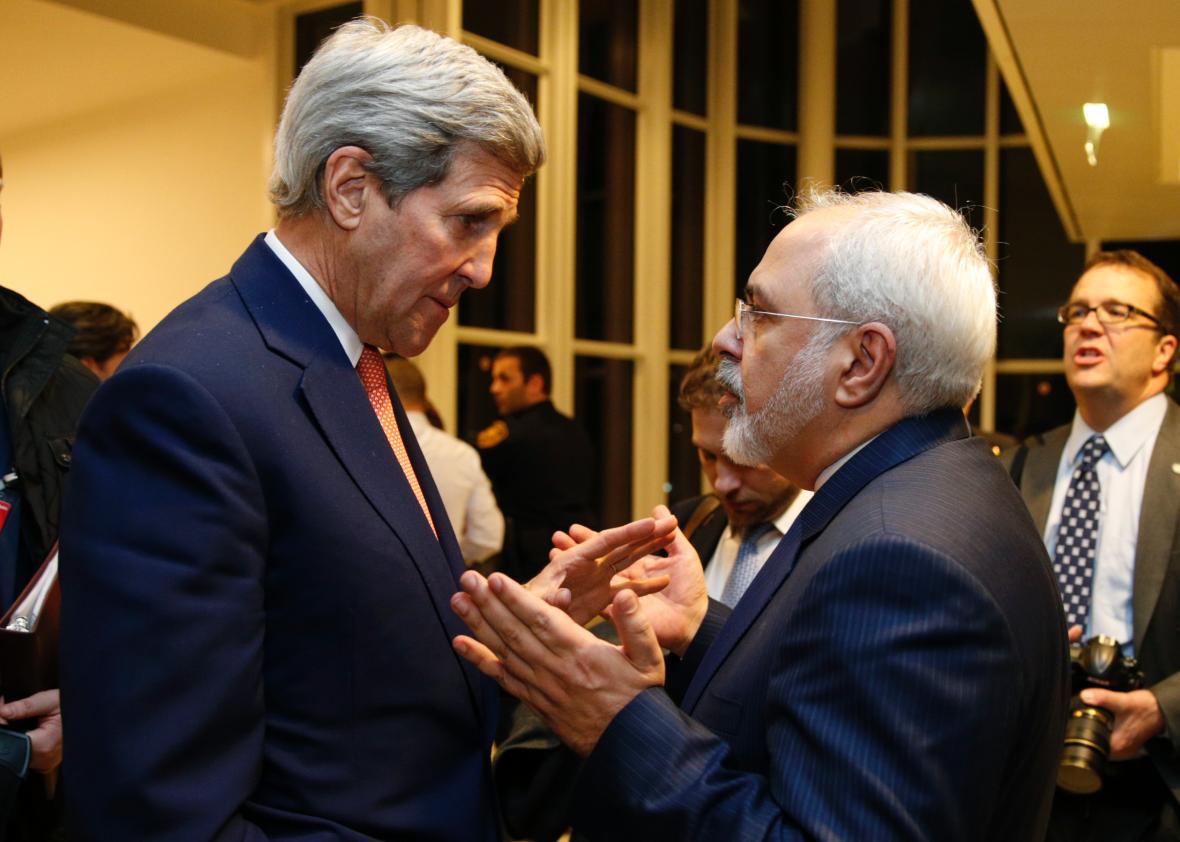The Obama administration on Thursday acknowledged for the first time that it had delayed making a pre-arranged $400 million cash payment to Iran back in January in order “to retain maximum leverage” and ensure the release of several American prisoners. For Republicans who have long been critical of President Obama’s posture toward Iran, the admission was all the proof they needed: The president had paid a ransom.
“We now know from the State Department announcement that President Obama lied about the $400 million dollars in cash that was flown to Iran—he denied it was for the hostages, but it was,” Donald Trump declared at a campaign rally. “He said we don’t pay ransom, but he did.” On Friday, RNC Chairman Reince Priebus took that conclusion as a given while demanding that Hillary Clinton “immediately disavow” the president. “Clinton’s support for Obama’s Iran ransom reflects the same bad judgment that characterized her foreign policy decision-making as secretary of state,” he said.
The truth, however, is far more complicated than Republicans are making it out be—and also slightly more so than what the Obama administration originally claimed. But describing what happened as “ransom” is an intentionally misleading simplification of what was a long and complicated process.
For starters, it’s important to remember why the United States was sending $400 million to Iran in the first place. The cash was part of a settlement to a long-running financial dispute between Washington and Tehran that dated back to the Iranian Revolution of 1979. Shortly before the overthrow of the U.S.-backed government that year, Iran had paid the United States $400 million as part of an arms deal—but Washington never delivered the military equipment it promised. Before it could hold up its end of the deal, the Carter administration severed diplomatic relations with Tehran—and froze Iranian assets in the United States—as result of the Iranian hostage crisis. In short: The $400 million in question wasn’t really the United States’ to begin with. This $400 million from the Obama administration wasn’t a payment; it was a repayment.
The reason the United States had yet to return the cash until this year is because diplomacy is a slow process that can be slowed even further by international bureaucracy. Under the Algiers Accords of 1981—which ended the Iranian hostage crisis—Washington and Iran agreed to the creation of an international court that would deal with any outstanding issues, which included what to do about that $400 million. The tribunal still had not yet made a final ruling as of early 2016, but nonetheless it was only a matter of when, not if, a decision would come down. Fearing it might lose the case, and seeing an opportunity to remove a point of contention with Iran during the ongoing nuclear talks, the State Department agreed to a settlement whereby it repaid the $400 million in full, plus an additional $1.3 billion for inflation and interest.
While it’s impossible to know what the international court would have decided if given the chance, it’s unlikely it would have ruled that the United States owed Iran less than $400 million, the very amount it paid before 30-plus years ago of inflation took effect. Still, Republicans could argue that Obama should have struck a better deal, simply taken his chance in court, or even refused to ever turn over any money to Iran—but doing any or all of those would involve complicating their chosen narrative. And so instead they’re conflating complaints about the timing of the payment with the payment itself, and by doing so are suggesting that Obama has now given Iran and others incentive to kidnap Americans. Note, for example, that they are furious over the first $400 million installment but rarely mention the additional $1.3 billion.
The problem, as far as Republicans are concerned, is that the settlement was announced back in January on the very same day that the high-profile Iran nuclear deal was completed, which itself occurred only a few hours before Iran released the detained Americans as part of a prisoner swap between the two nations. That complaint isn’t completely without merit—at least if you are willing to ignore the nonsensical GOP claim that a settlement that was announced publicly back in January was somehow “secret.”
The Obama administration maintains that the three moving parts—the nuclear deal, the arms settlement, and the prisoner swap—were negotiated by three separate teams, which by all accounts they were. But it’s also obvious that all three didn’t happen in a vacuum. The return of the American prisoners was a top priority for Washington, and the return of the arms money was a top priority for Tehran. It’s perfectly reasonable to believe that progress on one front made it easier to make progress on the other, or that progress on both created a less-contentious diplomatic climate in which the larger nuclear deal could get done. That’s how diplomacy often works. The fact that the State Department has finally admitted it waited to deliver the first $400 million to ensure the detained Americans were indeed on the way home doesn’t change that. Instead, it simply suggests the United States and Iran still have some trust issues, which shouldn’t shock anyone, least of all Republicans who maintain Iran can’t be trusted.
Still, the Obama administration would have been better off if it wouldn’t have tried to obscure that fact originally in hopes of avoiding this discussion altogether. If the White House would have simply admitted this whole thing was more complicated from the get-go, Americans would have had a better understanding of what their government was doing and why. Some might not have agreed with the administration’s actions, but such disagreements would have been substantive instead of speculative. And if that weren’t a good enough reason for the administration, there’s this: Being more forthcoming in January would have made it far more difficult for Trump and his fellow Republicans to misconstrue the situation between now and November.
